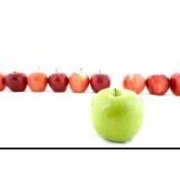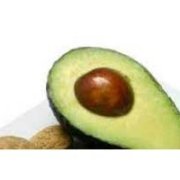Gut Bacteria and Improved Fertility
Can probiotics increase your fertility? It may be!
Those extra pounds around your middle may not only upset you when trying to fit into your favorite jeans, but they also may be upsetting your motherhood dreams. We now know that the extra fat is not just excess tissue sitting harmless around your belly, but rather active tissues that release inflammatory compounds that may contribute to ovulation irregularities.
Indeed, the effect of the extra fat can be so powerful than in one study, published in the Journal of The College of Physicians and Surgeons Pakistan 2013, 96 obese women who failed to conceive within 2 to 5 years after taking fertility treatments were put into a lifestyle change program in which exercise and dietary guidelines were provided. After six months on the program, participants who decreased their body fat and body weight from obese to just slightly overweight had a 42% increase in spontaneous conception, and a 22% increase in conception with ovulation induction therapy.
The real deal with probiotics
Certainly, dietary changes go way beyond the “quick fix” mentality that many fall victim to. They think the latest supplement will lead to weight loss without their having to break a sweat and cut down on the ice cream. However, there are few supplements available that studies have shown can improve metabolism.
The latest supplements on the weight management stage are probiotics. I am sure you have heard about them.
Intestinal inflammation, due to regular excesses of sugar and saturated fats in the diet, can alter the balance between “good and the bad” bacteria that reside in the colon. Gut microbes induce a wide variety of host responses that influence metabolism, particularly the lipid and glucose response. When impaired this can lead a chronic inflammatory state, the underlying cause of health issues such as diabetes, heart disease, and obesity, to name but a few.
The good news is that you can help to restore your gut’s flora equilibrium with proper dietary changes – swap simple carbs for fiber-rich ones, exchange saturated fats for omega-3 fatty acids, etc. – but also by adding more probiotics, the good bacteria.
See the body weight drop
In a study published in The British Journal of Nutrition, 125 overweight men and women enrolled in a 12-week diet period, followed by a 12- week period aimed at maintaining body weight. Half of the participants took two probiotic pills daily, while the other half had a placebo. After the 12-week diet period the participants who took the probiotics lost about 10 pounds, while the ones who took the fake pills lost only 5 pounds. After the 12-week maintenance period the ones who took the placebo remained stable, but the probiotic group continued to lose weight.
Maintaining the good gut strain of bacteria prevents inflammatory compounds from entering the bloodstream, where they can lead to impaired metabolism and glucose control, conclude the authors of the study.
Equally important was that the researchers noticed a reduction in the appetite inducing hormone leptin among the participants in the probiotics group.
Quantity matters
Although supermarkets shelves are packed with “contain probiotics” food claims, don’t be fooled. Foods called “rich” in probiotics – such as yogurt (with live and active cultures) still won’t be enough to produce many health benefits. Likewise, not all strains of probiotics are the same. Some work against recurrent urinary tract infections or antibiotic-induced diarrhea, but neither has the right colony forming units (CFU) to have any real effect on intestinal flora.
Look for a supplement with 1 to 3 billion CFUs. Several of the top brands of probiotics have only one or two strains of probiotic bacteria, and most do not include stomach acid protection, which keeps the bacteria viable as it passes through your stomach.
So, before opening your wallet to buy probiotics supplements, ask your Lifestyle specialist which one is the best to help you lose weight and improve your fertility outcome.
Click here to view the original article.











